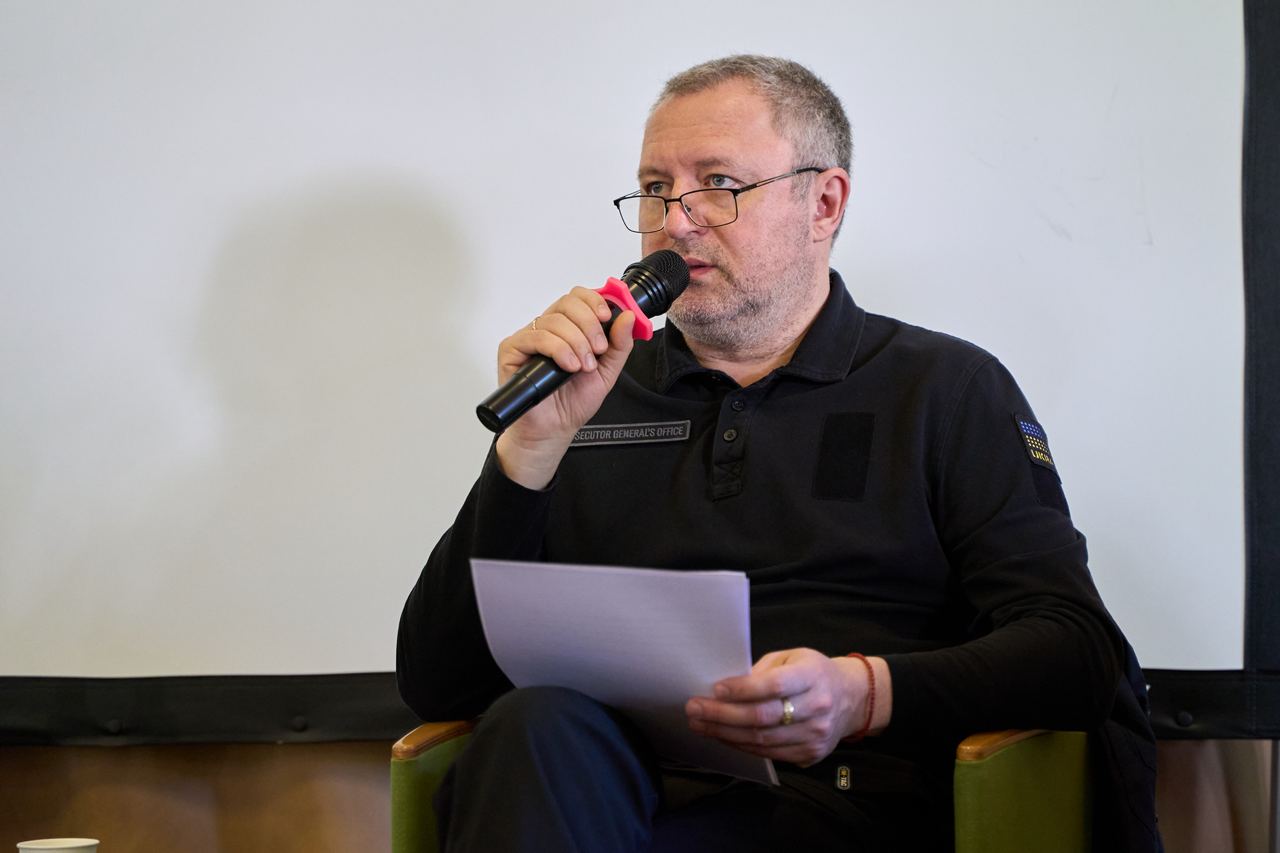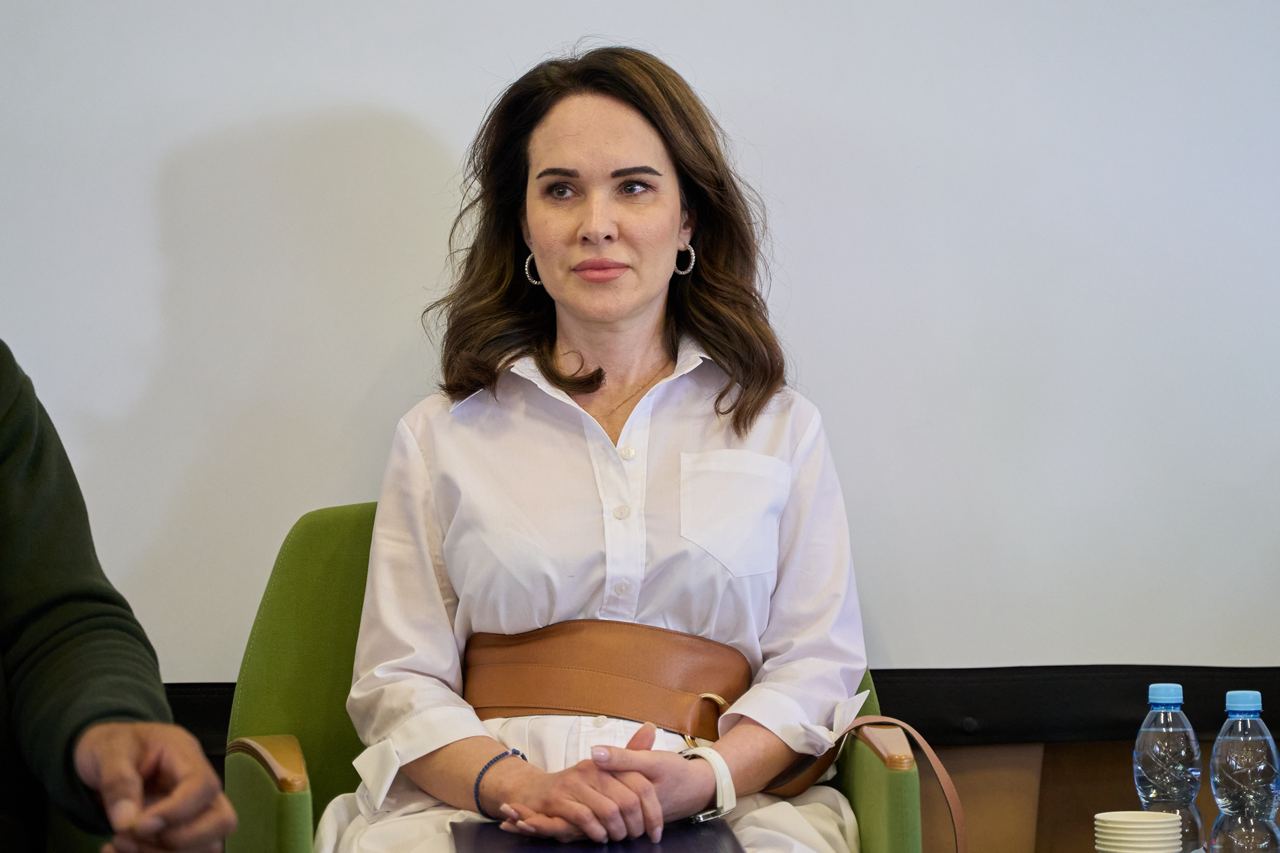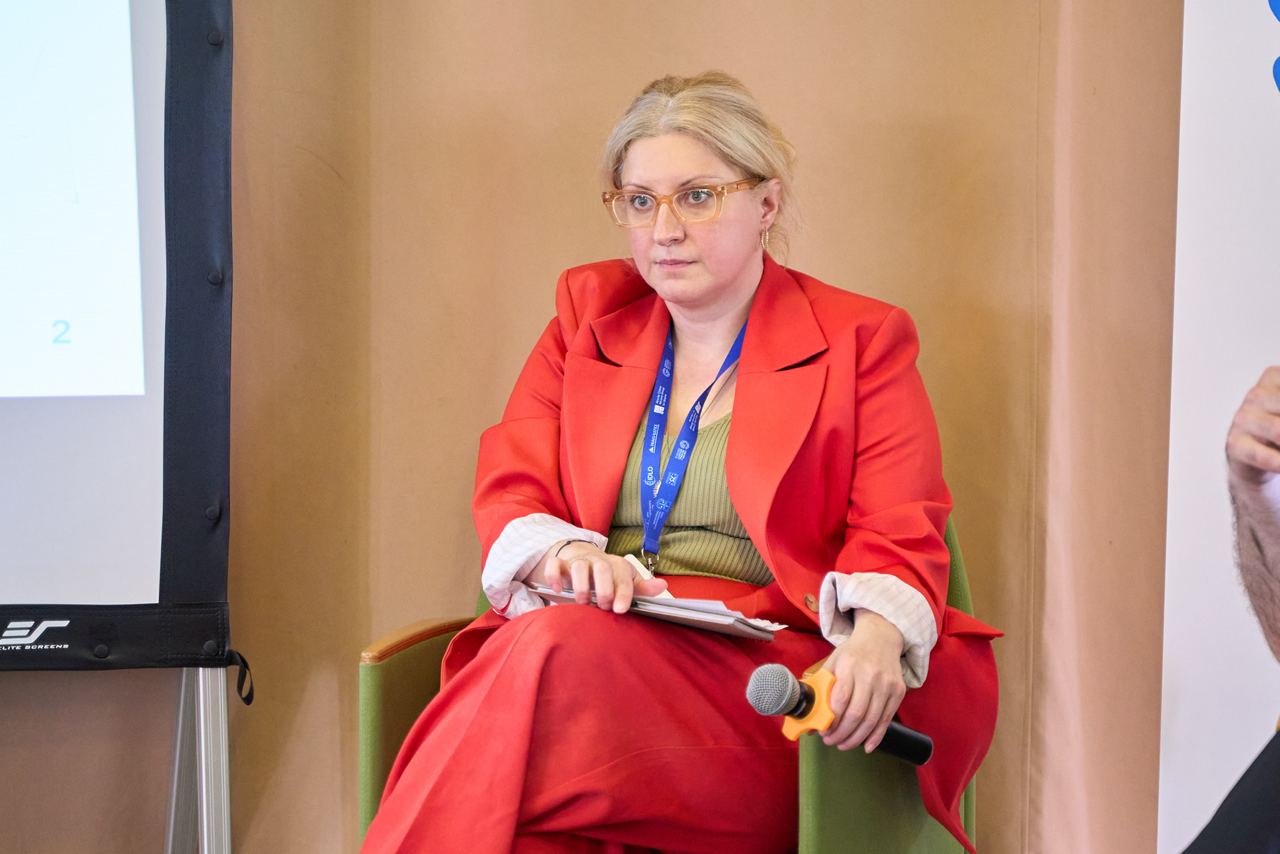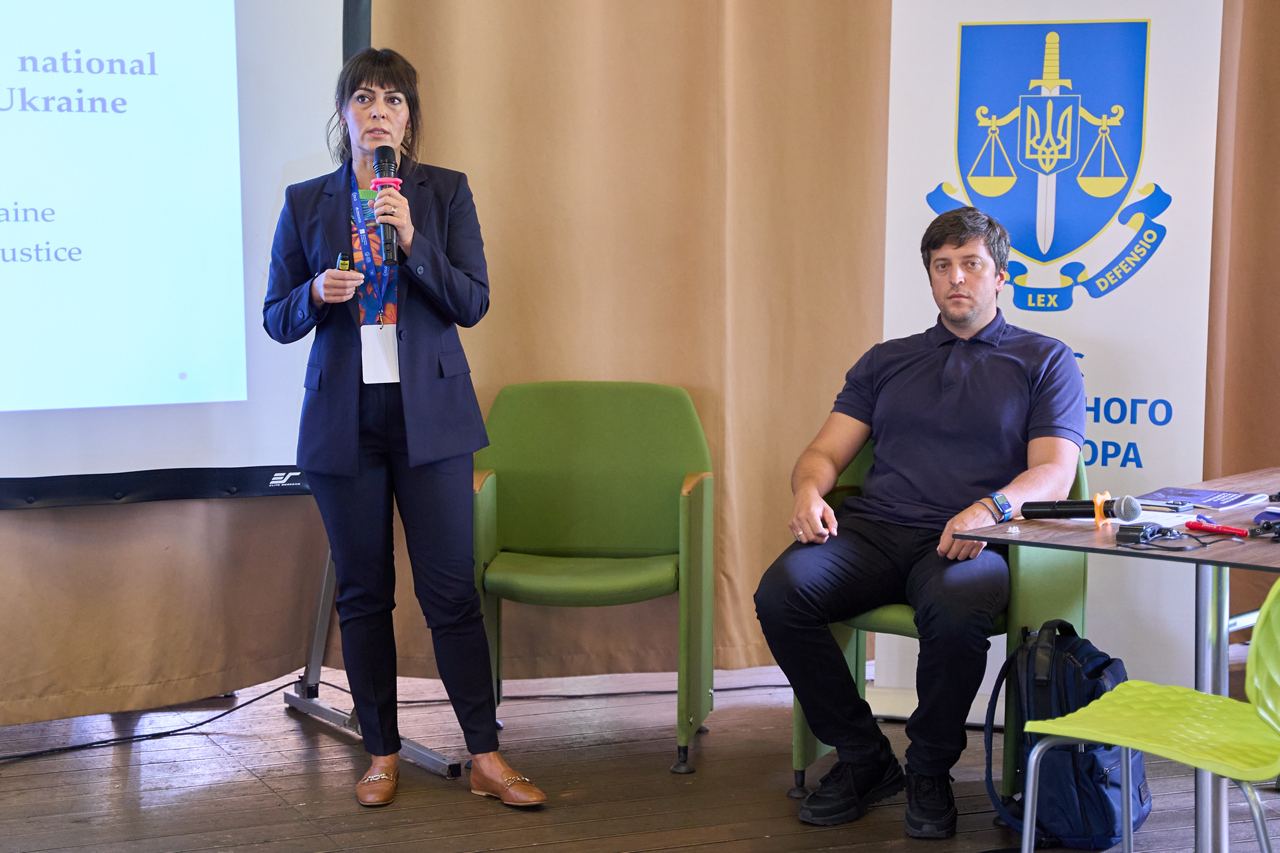EU Project Pravo-Justice Supported a Workshop for Media Representatives

On June 7-8, a workshop for media representatives "International Law of Armed Conflicts and Mechanisms of Holding Russia Accountable for International Crimes" took place held. The event was intended to provide media representatives with clear understanding of key aspects of international criminal and international humanitarian law, as well as to present Ukraine’ progress in the investigation of Russia’s international crimes, and to give update on the details and data on various types of crimes committed by the aggressor.
The speakers of the panel dedicated to a plan to build a network of comprehensive liability for international crimes were Prosecutor General of Ukraine Andrii Kostin, Deputy Head of the Office of the President Iryna Mudra, and Lead Investigator of international crimes committed in Ukraine from the International Criminal Court Brenda Hollis.

"We understand that the greatest burden of documenting, investigating and prosecuting war crimes, crimes against humanity, genocide, and, without a doubt, the crime of aggression will be on us. After all, all international instruments are complementary; they cannot replace national institutions," said Andrii Kostin.
The Prosecutor General also reminded that more than 130,000 war crimes cases had been registered, in which more than 600 suspects had been identified with 160 being convicted.
"This is unprecedented. Most country that went through a war, were just trying to collect evidence. At the same time, we believe that it is our duty to restore justice in a timely manner," he emphasized.

In her turn, OP Deputy Head Iryna Mudra spoke about the Ukrainian concept of an international compensation mechanism for damages caused by Russian aggression. This mechanism, which was supported by the UN General Assembly on November 14, 2022, includes the following structures: the international Register of Damages; the Commission for reviewing the application; and the Compensation Fund.
"The international order shall not be violated with the aggressor getting away from serious consequences. According to international law, Russia is obliged to compensate Ukraine for all the damage caused, but it should not be expected to do it voluntarily. That is why Ukraine should develop a mechanism that would force Russia to fulfil its international obligations and pay reparations," she said.

In her presentation, Tinna Goletiani, Fight against International Crimes Sub-Component Lead, EU Project Pravo-Justice, focused on the issue of evidence in the investigation of crimes against humanity in the context of Russia’s full-scale invasion.
Crime against humanity is one of the most serious international crimes. It covers, for instance, such prohibited acts as torture and murder, which are committed in a large-scale or systematic manner against the civilian population in accordance with or in support of a state or organisational policy of committing such attacks. As of now, unfortunately, its definition has not been incorporated into the Criminal Code, because Ukraine is not a state party to the Rome Statute.
Tinna Goletiani emphasised that in the context of those crimes, the ICC had already issued two arrest warrants in respect of the top military leadership of the Russian Armed Forces, namely: Admiral Viktor Sokolov and Lieutenant General Sergei Kobylash, due to the consequences of the attack on critical infrastructure.
In addition, according to her, it is extremely important that journalists know the specifics and elements of this crime, in order to be able to qualify the continuous attacks on the civilian population not only as war crimes, but also to see the broader picture.
"When working on materials related to the topic of war crimes, for example, murders, deportations, or conflict-related sexual violence, journalists may establish linkage among individual war crimes that occur in different parts of Ukraine. This will facilitate the formation of a broader picture, which may amount to a crime against humanity," said Tinna Goletiani.
According to her, at one time, such work by journalists was very effective in detecting crimes in Bosnia and Herzegovina. The fact that individual cases can become wider is an important detail to keep in mind.

Davorka Colak, Expert of the Atrocity Crimes Advisory Group, spoke about Croatia’s experience in prosecuting international crimes under national jurisdiction, which could be used by Ukraine.
"Croatia is ten times smaller than Ukraine, but it has also suffered from terrible aggression. The challenges we have faced in the judiciary can be related to your current situation," she said, stressing that they can all be effectively overcome.
"I must admit that my Ukrainian peers are much faster than we used to be," she said. Davorka Colak also called for building a reliable and sustainable system that would exist for decades and would be trusted.
The event was organised by the Office of the Prosecutor General with the support of EU Project Pravo-Justice, the International Development of Law Organization (IDLO), the Atrocity Crimes Advisory Group (ACA), the Georgetown Center for National Security, and the Office of the Council of Europe in Ukraine.